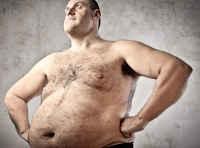Human Study Links High Meal Frequency to Higher Weight Gain and Accumulation of Liver Fat: Are Our Sugary + Fatty Snacks the Reason We Are Sick & Obese?

The "average Westerner" is fat. That's for sure, but is it actually possible that it is the often recommended increase in meal frequency which is to blame for that? A soon-to-be-published published study from the Academic Medical Centre Amsterdam sheds a whole new light on the role chocolate bars, potato ships, coke and even "healthy" *rofl* fruit juices may play in the etiology of the obesity epidemic (Thanks to reductions in life expectancy and fertility the US prevalence of overweight, obesity, and extreme obesity will plateau at about 28%, 32%, and 9% in 2030; cf. Thomas. 2013) In a one of a kind human study, the researchers assigned 36 lean, initially healthy men to a 40% hypercaloric diet that was meant to emulate the contemporary food intake of US kids who get ~ 27% of their daily energy intake from high fat and high fat + high sugar snacks. You can learn more about meal frequency at the SuppVersity Grazin' Bad For the Obese! Breakfa...





